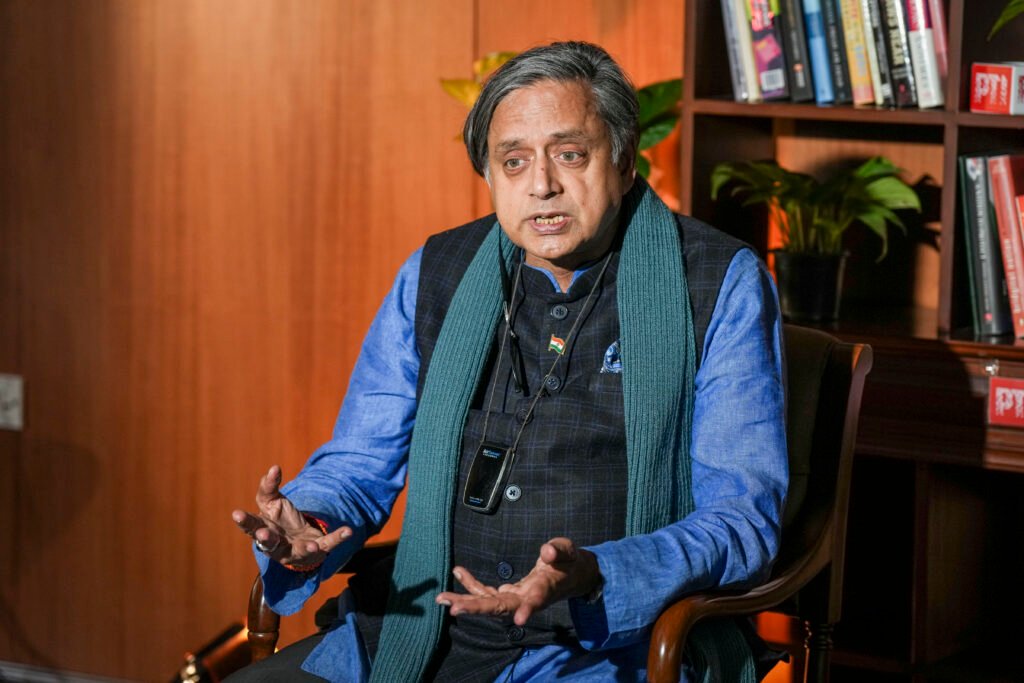
In a departure from his usual verbose style, Congress MP Shashi Tharoor resorted to Hindi poetry to voice his criticism of the BJP-led government during a parliamentary session. Tharoor’s poetic rebuke came amidst discussions on the interim budget presented by Finance Minister Nirmala Sitharaman on February 1, drawing attention to what he perceives as the government’s failure to address pressing economic concerns.
The Congress stalwart recited a verse in Hindi, penned by his former colleague Vijay Dhillon, lamenting the burden of debt and rising costs of essential commodities faced by the common man. “Karz ke bojh se aam aadmi tar tar ho gaya, mehenga ho gaya khana peena, mehenga ghar ho gaya (The common man is overwhelmed by the burden of debt, food and housing has become expensive),” Tharoor expressed, echoing the sentiments captured in Dhillon’s poignant verse.
Taking a swipe at the Modi government’s policies, Tharoor highlighted the growing disparity between the privileged few and the marginalized masses. He critiqued the ostentatious lifestyles of a select group juxtaposed with the destitution faced by the majority of citizens. “Kuch chuninda yaaro ko bade bungalow ho gaye, baalon se pairon tak hum kangle ho gaye (Some selected friends got big bungalows, we became destitute from hair to feet),” Tharoor poetically conveyed, underscoring the widening socio-economic divide under the current administration.
Tharoor’s poetic interjection sparked debate both within Parliament and on social media platforms, with the Congress party sharing the video of his speech and Tharoor himself acknowledging the authorship of the poem to his colleague, Vijay Dhillon. The unconventional critique underscored the depth of discontent and disillusionment prevailing among opposition lawmakers towards the government’s economic policies and governance approach.
Earlier in the day, during the debate on the interim budget, Tharoor had launched a scathing attack on the Modi government’s track record, accusing it of empty rhetoric and failed promises. He dissected the government’s “GDP” mantra, attributing “G” to governmental intrusion and tax terrorism, “D” to demographic betrayal, and “P” to perpetuated poverty.
Tharoor’s vocal dissent reflects the broader sentiment of frustration and skepticism towards the BJP-led administration’s performance, particularly on economic matters. As political tensions escalate, the poetic critique serves as a poignant reminder of the challenges confronting India’s democracy and the imperative for robust discourse and accountability in governance.
Sources By Agencies

